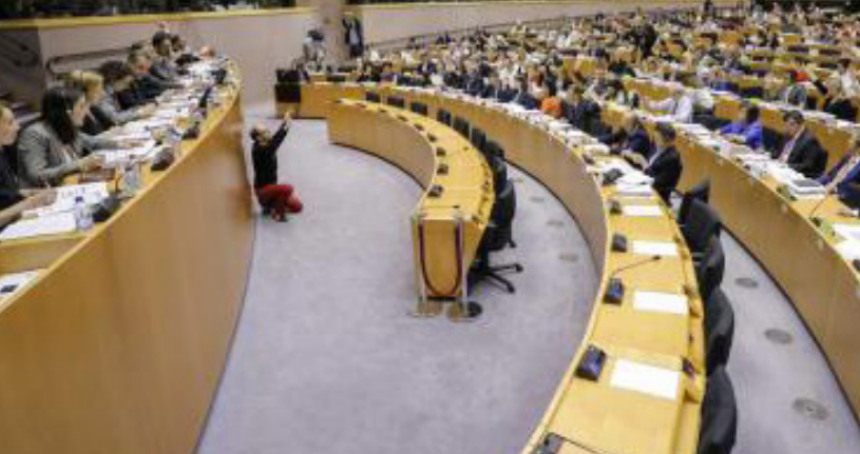
The European Union, with more than half a million inhabitants, is the world's largest economy and trading power. With only 7% of the world's population, it generates more than a quarter of global wealth. However, the "austerity-acidic" policies applied in the EU have resulted in the economic zone is also where the impact of the crisis has been greater, making it the region with the lowest growth capacity, with more job losses and greater risk of increased poverty and inequality.
To grow out of the crisis we must implement policies that promote growth, aimed at increasing the potential output of the economy on the basis of a competitive and efficient economy. Promoting trade is a key instrument to boost competitiveness, growth and quality employment without requiring a policy of higher public spending. We need to develop a policy of trade agreements that will contribute to removing barriers to open more markets, especially in those countries that grow more and more steadily.
The TTIP is a project of enormous economic significance because it would result in the largest free trade area in the world, with a population of 820 million people, a GDP equivalent to 60% of world GDP and trade volume of transactions valued at present at 960 thousand million Euros per year. The agreement also is of great geopolitical significance because it would strengthen the EU's international leadership in the new global scenario that is increasingly shifting to China and the Pacific.
Foreign trade in Spain employs around one million six hundred thousand people whose average wage level and qualifications are superior to those of non-export sectors. The depreciation of the Euro is stimulating exports, but this is a temporary situation, product of the expansionary monetary policy of the ECB that cannot last over time. Therefore, it is necessary to apply to structural policies to facilitate trade permanently. Since the Spanish economy has to meet deficit targets, that their debt level is very high and exceeds 100% of GDP and supports a high level of unemployment, the importance of trade policy is clear.
The PSOE continues to defend fair and well-regulated trade
According to the TTIP impact studies carried out that take into account the perspective of the Member States, the impact varies according to geographical characteristics, the provision of infrastructure and economic specialization. Spain would be the fourth largest beneficiary of the Agreement, behind the United Kingdom, Sweden and Ireland, with a per capita GDP that would grow by 6.55%. It would therefore be beneficial for the Spanish economy in general terms, reaching a Trade and Investment Agreement with the US. The Government of Spain should commission a specialized and independent body of an impact study on the Spanish economy of the TTIP, as the Socialist parliamentary group in Congress has demanded.
From the point of view of trade barriers, although tariffs between the EU and the US are already very low (an average of 4%), removal would be obtained in many sectors would result in a significant boost to trade, growth and employment. In Spain, it would be especially beneficial for those sectors under high tariffs, such as footwear (35%) and ceramics (17%), which means that thousands of small and medium enterprises could expand their export markets.
Nevertheless, more restrictive to trade and more difficult to eliminate than tariffs, are non-tariff barriers, estimating their cost at around 20%, which especially hamper market access of SMEs. The objective is to achieve regulatory cooperation at the sectoral level where there is a convergence that makes it possible, without lowering any standards of consumer protection. This would involve deleting duplicate and double certification requirements. In Spain, the sectors that would benefit most are the automotive and supplier industries, machinery, manufacturing, food and engineering services and insurance. For example, the textile sector would benefit from a regulatory convergence on the labelling of garments. Having special labelling for products aimed at the American market seriously harms small and medium-sized businesses that cannot cope with such increases in costs. It is also essential to open the American market to competitive bidding for European companies to compete on equal terms. Spanish companies are world leaders in the sectors of construction and infrastructure management and would clearly benefit from opening the market.
The PSOE defends fair and well-regulated trade. We therefore support the negotiation of an ambitious, fair and balanced Trade Agreement between the EU and the USA. An agreement to promote the principles and values we share, to defend and ensure the protection standards we enjoy in Europe that can serve as a reference in world trade. An agreement that will benefit European consumers and open new opportunities for our companies, particularly SMEs.







